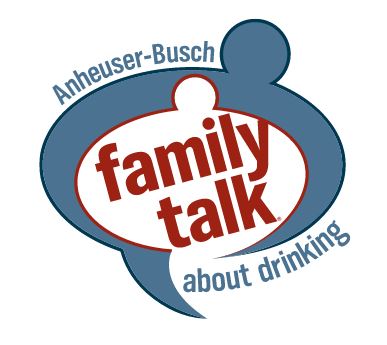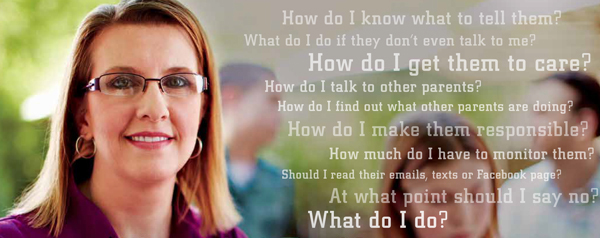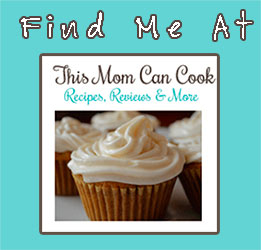“I participated in an Ambassador Program on behalf of Mom Central Consulting for Anheuser-Busch’s Family Talk About Drinking program. I received a promotional item to thank me for my participation.”
When you become a parent you just never know what challenges you are in for. That day you become a parent is the day you also become a teacher. Our job as parents are to teach our children what is right, what is wrong and steer them in the right path to make good decisions and choices in life.
When your children become teenagers the challenges in parenting tend to get a little harder. Our children start wanting to go to parties, hang out with kids we might be unsure of and might be put in situations that they must be prepared for. We as parents are the biggest influences in our teens’ decisions to drink alcohol. We need to ask open-ended questions that get our teens thinking about what they would do if they are offered a drink. Even though our teensthink they might know it all, it is our job to BE REAL when it comes to talking to our kids.
Be R-E-A-L:
Realize our children need to have a connection with us.
Examine our own assumptions and prejudices.
Always be aware of the other influences in our kids’ lives.
Listen, because all kids (especially teens!) have a deep need to be heard
I have been pretty lucky and have a really good relationship with my teens. While some parents might have to pull a sneak attack on their teens and ask questions in the car on the way home from school, I feel I can ask my kids anything at anytime and they won’t be afraid to answer. When you want to connect with your teens you have to listen to them and what they have to say. Best of all, respect their opinions!
MJ Corcoran has worked with parents for the past 20 years and has created a powerful parenting program that will help you make the changes to create more cooperation, connection, mutual respect and fun in your family. In 2011, MJ collaborated with Anheuser-Busch to refresh and expand the Family Talk About Drinking guide to become a program that parents can turn to throughout the parenting process, no matter how old their kids may be.
Below is Q&A session with MJ Corcoran that I want to share:
Q: Do you find that more active teens are less likely to drink than teens that are not involved in extra-curricular activities or the opposite?
Overall, that would be the logical assumption. In my experience being active in a sport or an activity keeps children engaged. Although, parents are the number one influence on their children’s decisions about drinking alcohol, youth engagement plays an important role as well because active teens have to practice responsibility, balance and discipline more than teens not involved.
Q: How should you address questions regarding what you did in your youth?
Being honest and open with your children may enable them to return that transparency and trust. How much to share with your children about your youth is a personal decision that parents should determine with their spouses. The important thing is to begin the dialog, listen to your children’s concerns and coach them in making smart decisions about avoiding alcohol.
Q: How do you get kids to even listen or pay attention to you on these topics?
It starts with listening to them first. Then look for those windows of opportunity to bring up the topic. In between those opportunities build your relationship with your child. Just because you don’t think they are listening, doesn’t mean your kids don’t hear you. Continue reaching out to them, asking open-ended questions and providing guidance on ways they can avoid alcohol. Research shows that parents are the No. 1 influence in their children’s decisions about drinking alcohol.
The Family Talk About Drinking Parent Guide provides some questions to help you get the conversation started like “If there is drinking at a party, what will you do?” or “If your friends wanted to drink, how would you handle it?”
Q: Do you think a parent drinking at home has any influence on whether their children will drink?
Alcohol is for adults 21 and older who choose to drink. As a parent, we serve as an example for our children. If you choose to drink, as an adult, do so responsibly. Be sure your actions match what you’re telling them, for instance use a designated driver.
Q: How much should you share about your personal history & experience (hint, I really don’t want to share much).
This is a personal decision and the focus is on their decisions and choices. Being honest and open with your children may enable them to return that transparency and trust. How much to share with your children about your youth is a personal decision that parents should determine with their spouses. The important thing is to begin the dialog, listen to your children’s concerns and coach them in making smart decisions about avoiding alcohol.
Q: We’re doing college orientation soon with our daughter, what should we be asking the staff & resident dorm advisors about drinking?
College orientation is a perfect time to become familiar with the University’s policies for underage drinking. Ask the staff and resident advisors what consequences the student will face if they are drinking underage. What process does the university take and who all is involved? (faculty, parents, etc.)
$25 Visa e-gift Card Giveaway
Would you like an extra $25 to spend to connect with your teen? Maybe take them out to lunch or a movie? One lucky Mom’s Blog reader is going to WIN a $25 Visa e-gift card. To enter for your chance to WIN use the Rafflecopter below:







I learned that their slogan Be REAL stands for Believe, Realize, Examine, Always, and Listen.
I learned that even at a young age, kids have a pretty sophisticated ability to know when they’re truly being listened to, and when they’re just being tolerated.
I learned that I can use a coaching model to have deeper more real conversations and be more open ended and a better listener.
I learned that there are certain way to approach the questions you want to ask you child about drinking.
We may think we know what our children are going through, but chances are, we don’t. Empathy is needed to discuss anything with our children.
I think it is very important to talk openly about drinking with your children. They don’t understand that they effects could be serious especially if they are old enough to drive.
I learned about different approaches when talking to your kids about drinking.
I learned about the different stages and what steps to take in each stage.
It is best to ask open ended questions when speaking to your children about drinking.
I learned that the concept of parenting stages is about learning to adjust our parenting styles to match our children’s cognitive development.
There are 3 levels of listening. The most progressive stage is Open-minded listening.
I learned how to ask questions using the Coaching approach! I just love how you change the normal things you say…and turn them around and ask the child questions! I will for sure be using this coaching method!
I learned that you can’t talk to your children as if they are adults and expect them to understand your reasoning. You have to understand their reasoning.
I learned that their slogan means- Be REAL stands for Believe, Realize, Examine, Always, and Listen! How awesome.
Great info on different levels of listening!
I learned that it’s not about preaching. The goal is to offer some practical, ongoing strategies for having deeper, more meaningful conversations about alcohol with your children.
I learned that before you can start talking to your kids about drinking, you need to ask yourself some questions about what you are going to discuss with them.
I learned about different approaches when talking to your kids about drinking.
I learned that you should be consistent both in our words and actions when it comes to alcohol so our children have a clear message about alcohol.
I like the coaching approach where you ask you child, “what would you do if….”
I learned that each child is different so theres no one size fit all guide
I learned that your child might not understand the ramifications of drinking so try to talk openly with them.
I learned to ask open ended questions – notsomuch yes and no ones.
I learned that we first need to understand underage drinking before talking with our children about it
I like the theory behind using the coaching approach to discuss this and also think this would be a useful technique for other difficult topics, too. Thanks for the chance to win!
mrsmchappell at gmail dot com
I learned The first step in talking to our kids about drinking doesn’t involve our kids at all. Instead, it’s about sitting ourselves down and asking ourselves some tough questions.